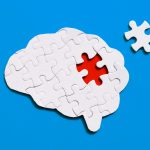From forgetting work deadlines to communicating poorly with your partner, struggling to focus on assignments to overwhelming anxiety — ADHD can have a huge impact on all aspects of your life. That’s why it’s important to get diagnosed and figure out how you can manage the condition most effectively.
Medication is often the first step in treating ADHD as it offers the most benefit, but the best results come from combining medication with other methods (also called non-pharmacological treatments).
Symptoms like forgetfulness, getting sidetracked and not following through on tasks can make managing ADHD on your own can be challenging. Constantly starting to make changes, not following through and feeling like you’re failing can be a hit to your self-esteem. That’s why getting help is so important.
Here’s what the evidence says are the best ways to manage ADHD without (or in conjunction with) medication.
1. Counselling
Working with a psychologist, psychiatrist or counsellor who specialises in ADHD can help you develop practical skills to tackle daily challenges and shift unhelpful thinking patterns that might be holding you back. You’ll learn how to set realistic goals, regulate your emotions better and build habits that help you feel more in control.
2. ADHD coaching
An ADHD coach is specifically trained to help educate you about the condition, build on your strengths, and develop strategies and systems to minimise the impact of your symptoms. A coach can provide personalised support and accountability, which can improve your confidence and self-awareness in managing ADHD. Check if your coach is approved by the International Coaching Federation (ICF), which ensures a level of competency, standards and ethics of their members.
3. Lifestyle changes
Further research is needed around lifestyle changes that can help treat ADHD, but regular exercise, a balanced diet and getting enough quality sleep is recommended. Sleep is essential for focus, mood and memory, while a workout can help curb stress and channel hyperactivity. Plenty of people plug certain dietary changes or supplements but there’s not a lot of good evidence that these work.
What to do when your partner has ADHD
Learn more about managing ADHD in a relationship here.
Expertise from lived experience
Scientific evidence isn’t always available for things that can really help individuals to minimise ADHD’s impact on their lives, but people who’ve walked your path before you can have a lot of useful tips. This Reddit thread has collected some of the best tips from people with ADHD and we’ve shared a few of them below.
Cleaning tips for managing ADHD
Designated spots
Have a specific place for every item, and always put it there.
Miscellaneous basket
Keep a basket in each room for items that don’t have an immediate home, and sort it weekly.
Distract yourself
Listen to podcasts or audiobooks while cleaning to stay engaged.
Bedtime cleaning
Do chores before bed as part of your night routine.
Memory tips for managing ADHD
Keep important items visible
Place things like medication near where you’ll see them, like your bed side table.
Use tech
Bluetooth trackers are great for finding lost keys and wallets.
Three-point check
Always check for phone, wallet and keys before leaving.
Visual cues
Place unusual objects out of place as reminders for things you need to do later.
Create checklists for tasks
Each time you have a new project to complete, check off each step as it gets done so that you can always refer back to it to see what needs to be done next.
Getting things done with ADHD
Break tasks down
Smaller steps to make them feel more manageable
Body doubling
Have someone nearby while you work to keep you on track.
Gamify tasks
Complete a chore while your coffee brews.
Reward yourself
Use positive reinforcement when tasks are done.
Starting something is better than doing nothing
Even doing a small bit of a task is better than procrastinating.
If you’re struggling to manage your ADHD always ask for help, particularly from your doctor who can point you in the right direction.












